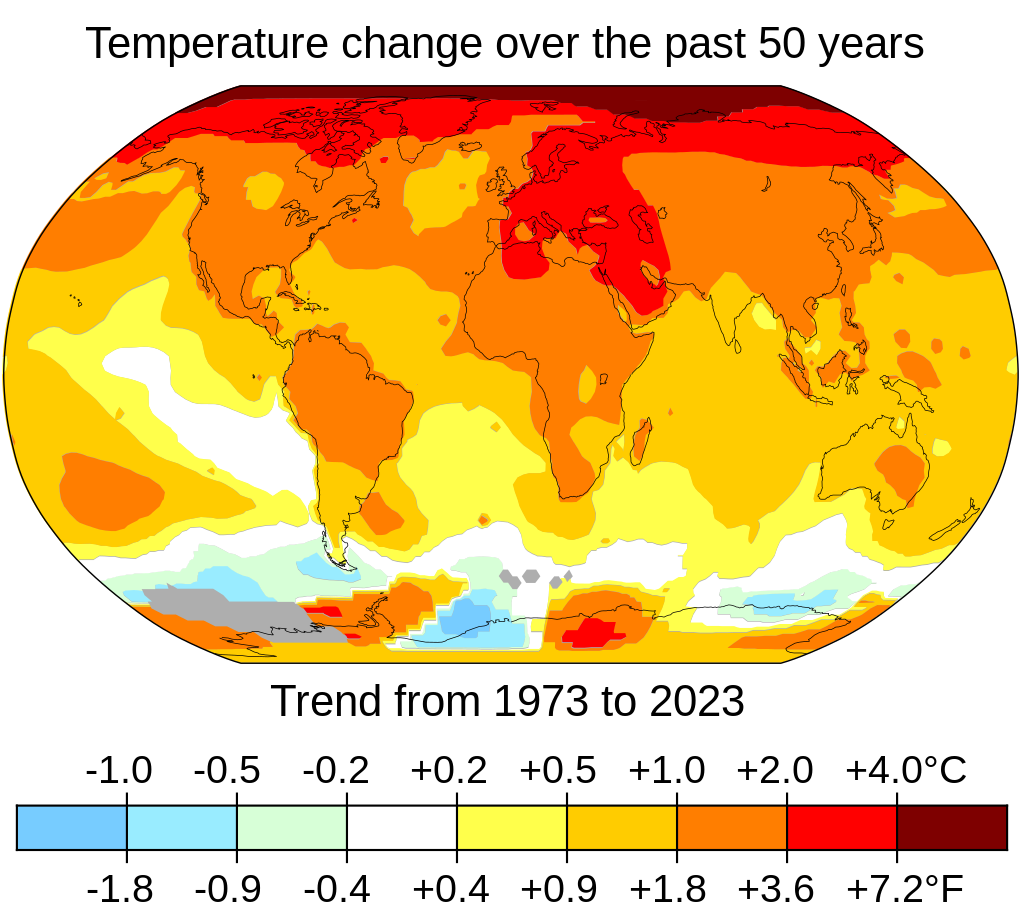Global warming is arguably the most significant cause of impact on the environment. The most prominent causes emanate from CO₂ levels from respiration to more detrimental reasons like burning fossil fuels and deforestation.
At any rate, humans are consistently increasing CO₂ levels globally- every year. The highest level of CO₂ in recorded history before 1950 was about 300 parts per million. However, current measurements of CO₂ levels have exceeded 400 PPM, abolishing every record dating back 400,000 years.
The increase in CO₂ emissions has contributed to the planet’s average temperature increasing by almost a whole degree.
As the temperature increases, arctic land ice and glaciers melt, which causes the ocean levels to rise at a rate of 3.42mm per year, allowing more water to absorb more heat, which melts more ice, creating a positive feedback loop that will cause the oceans to rise 1-4 feet by 2100.
Climate change is closely connected to the historical development of industry and technology. As global temperatures increase, Earth’s weather patterns will drastically change. While some areas will experience longer growing seasons, others will become barren wastelands as water will deplete in vast areas, turning once floral regions into deserts.
The increase will impact weather patterns, promising more intense hurricanes in both size and frequency and intensifying and prolonging droughts and heat waves. But air pollution does not just affect the environment.
The evidence is mounting that poor air quality, and rising temperatures are ruining delicate ecosystems, even leading to increased asthma and cancer rates in humans.

